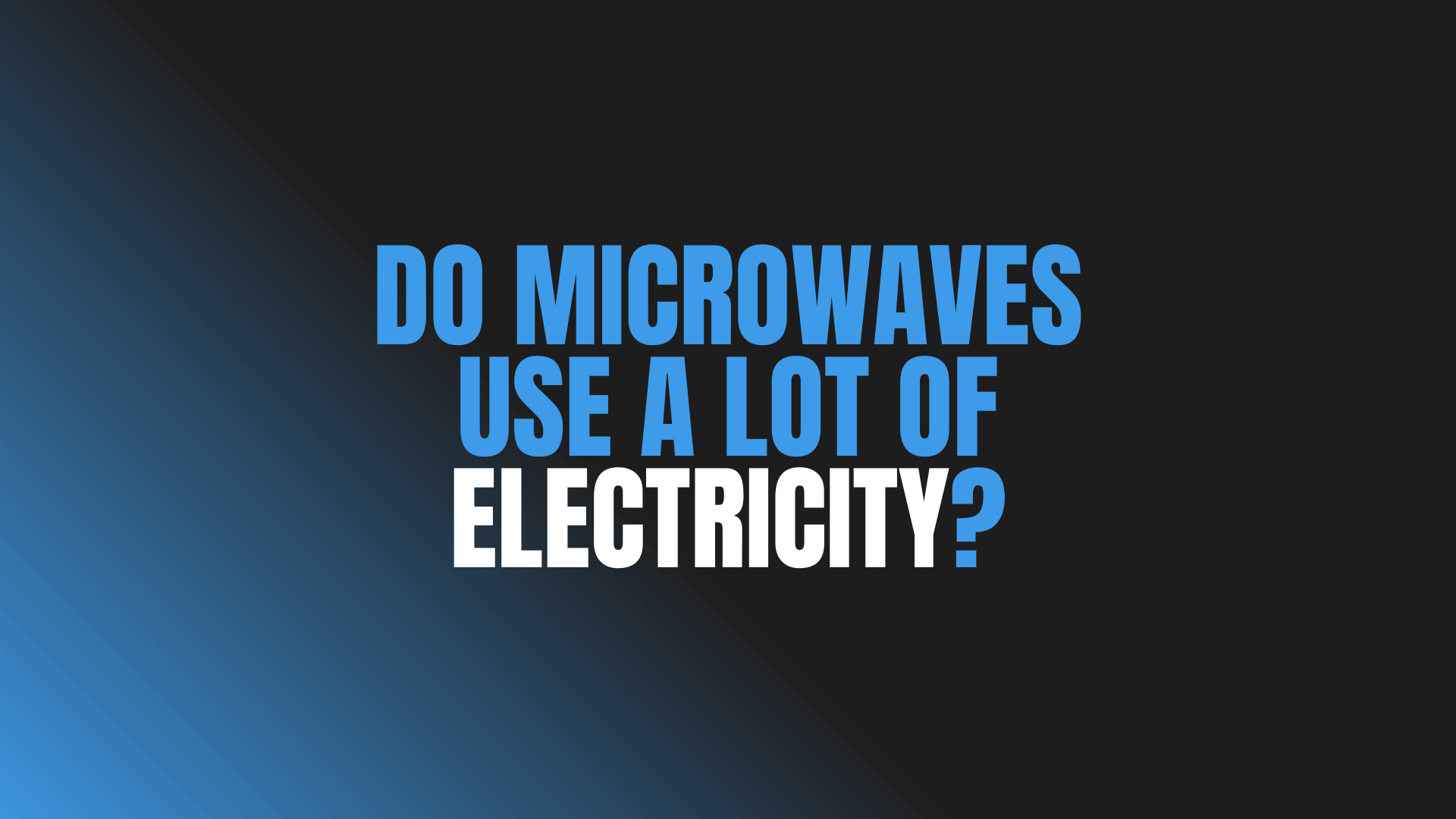
Question: Do Microwaves Use a Lot of Electricity?
Answer: Microwaves use a moderate amount of electricity. While wattage is high (700-1200 watts), cooking times are short, resulting in relatively low overall energy consumption.
Microwave Electricity Consumption
Microwaves are kitchen staples. Their speed and convenience make them indispensable for quick meals and reheating leftovers. But a common question lingers: do microwaves use a lot of electricity? This article explores microwave energy consumption, comparing them to other kitchen appliances and providing practical tips for efficient use.
We’ll examine the factors influencing a microwave’s power usage, from wattage to cooking time. We will also discuss how to accurately calculate your microwave’s electricity costs.
Understanding Microwave Wattage
A microwave’s wattage indicates its power consumption rate. Higher wattage microwaves cook faster but draw more electricity. Typical microwave wattages range from 700 to 1200 watts. A 1000-watt microwave uses approximately 1 kilowatt-hour (kWh) of electricity if operated continuously for one hour.
However, most microwave cooking tasks take only a few minutes. This shorter duration significantly reduces the actual electricity used per cycle. Consider the actual cooking time when evaluating a microwave’s energy impact.
Click here to read more about Blue Kitchen Refacing
Related Article: What Are the Disadvantages of Drawer Microwaves?
Related Article: What Uses More Electricity, an Air Fryer or a Microwave?
Comparing Microwaves to Other Appliances
Microwaves often use less energy than conventional ovens, especially for shorter cooking tasks. Ovens require preheating, which consumes significant energy. Microwaves heat food directly, reducing energy loss and cooking times. This makes microwaves more efficient for reheating or cooking small portions.
Consider other cooking methods like stovetop cooking. While stovetop burners may use more energy overall, they can be more efficient for larger meals. The optimal choice depends on the specific cooking task and the quantity of food.
Tips for Efficient Microwave Use
Several strategies can minimize microwave energy consumption. Using the correct power settings for your food type is key. Lower power settings may require longer cooking times but use less energy overall.
Covering food with a microwave-safe lid traps steam, speeding up cooking and reducing energy usage. Ensure the microwave door seals properly to prevent energy leaks. Regular cleaning helps maintain efficiency.
Additional Energy-Saving Tips:
Defrost food in the refrigerator
Defrosting in the refrigerator avoids using microwave energy altogether.Avoid overheating
Overheating wastes energy; heat food only to the desired temperature.Use microwave-safe containers
Appropriate containers promote efficient heating.
The Impact of Standby Power
Many modern microwaves consume a small amount of energy even when not in use. This “standby power” powers the clock and other features. While the standby power consumption is low, it contributes to overall electricity usage over time.
Consider unplugging your microwave when not in use for extended periods to eliminate standby power consumption. Alternatively, choose a model with a low standby power draw. Small changes can lead to significant savings over the long term.
Conclusion: Do Microwaves Use a Lot of Electricity?
Microwaves do not necessarily use a lot of electricity, especially compared to other cooking appliances for similar tasks. Their efficiency stems from direct food heating and short cooking times. Factors like wattage, usage habits, and standby power contribute to their overall energy consumption.
By understanding these factors and implementing the suggested energy-saving tips, you can effectively manage your microwave’s electricity usage. This allows you to enjoy the convenience of a microwave without worrying about excessive electricity bills.

Blue Malue Get in touch with Blue here.
